
Carla Del Ponte: Putin’s crime of aggression ‘has already been proven’
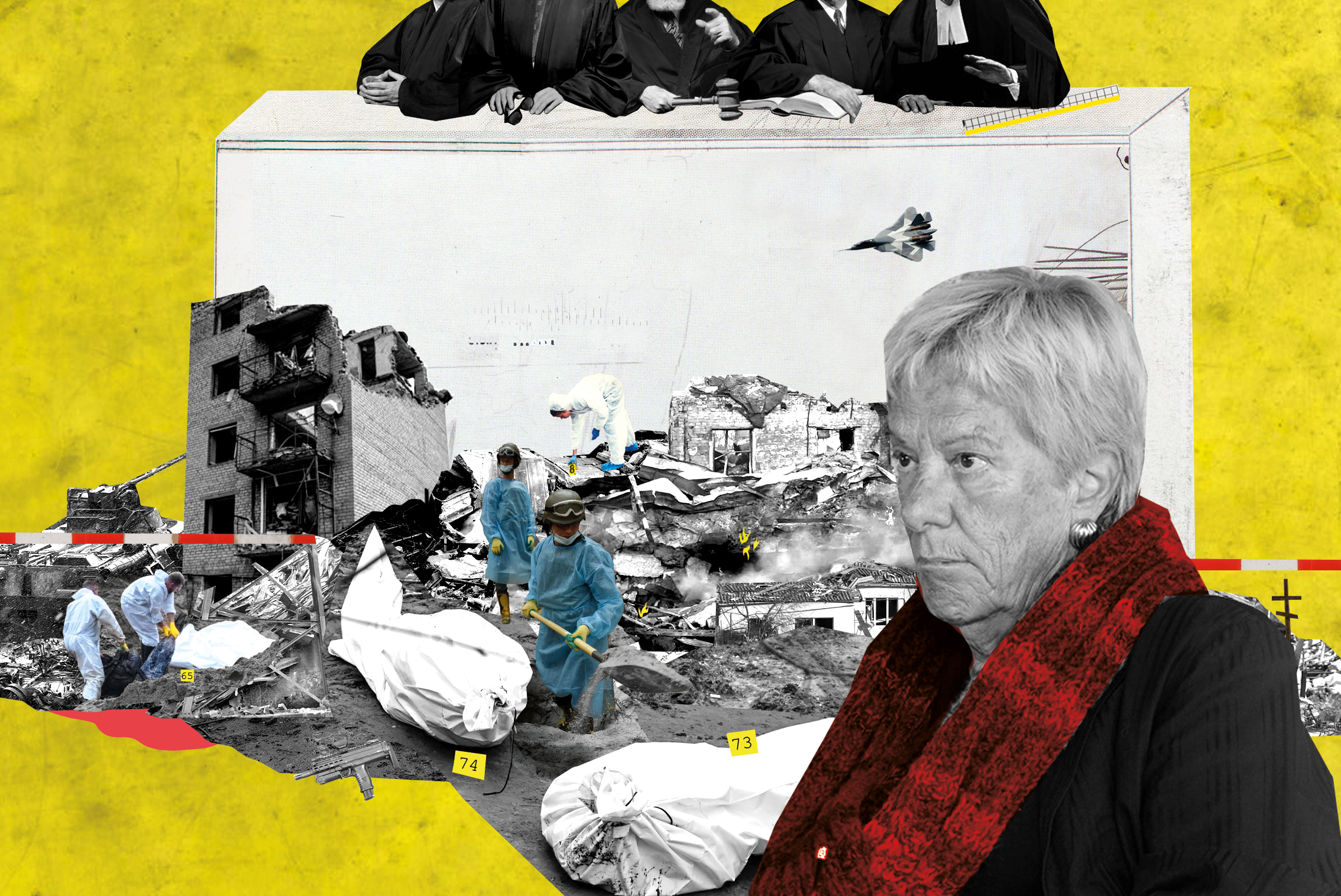
Shocked by the discovery of mass graves in Ukraine, former international prosecutor Carla Del Ponte holds Russian President Vladimir Putin responsible for the aggression. The evidence is already there, she argues.
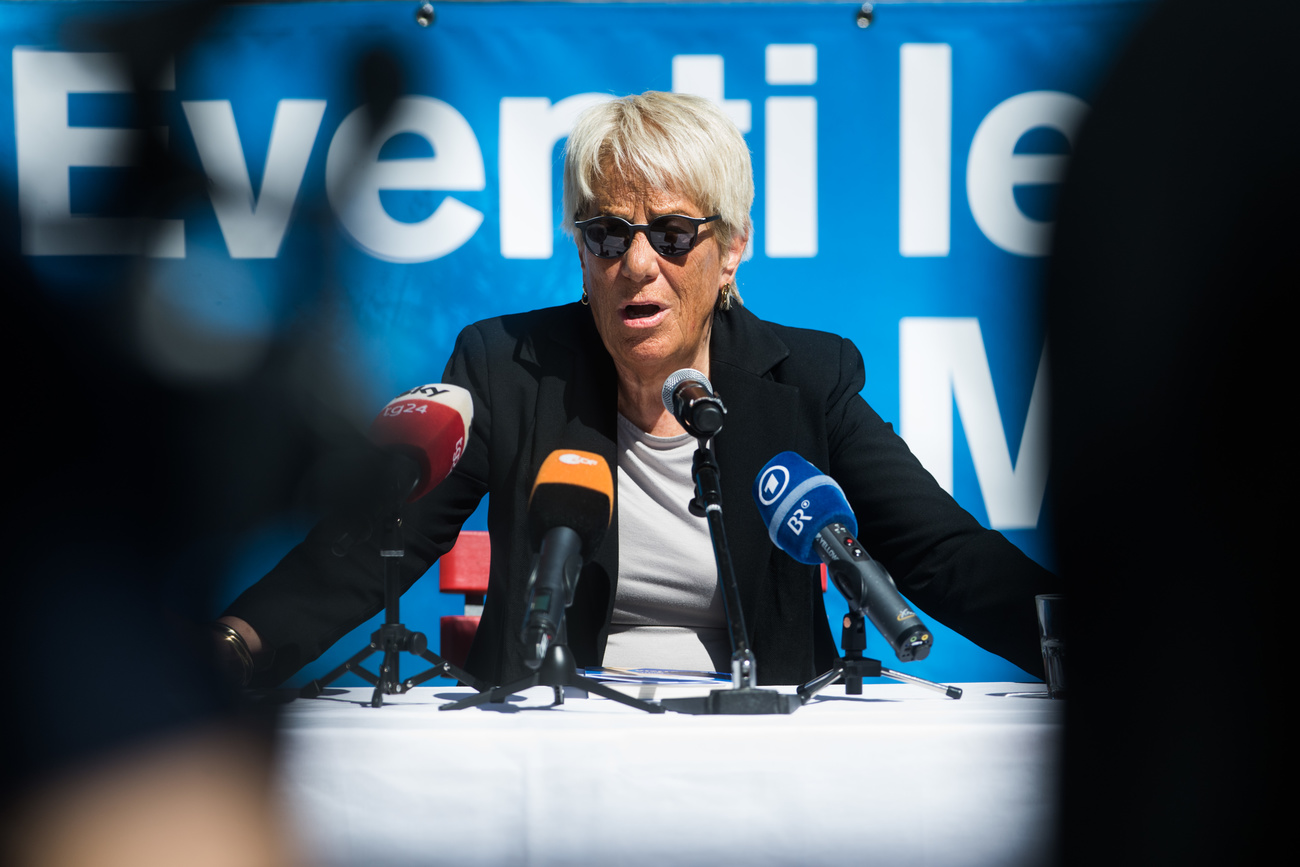
After serving as chief prosecutor at two international criminal tribunals – for Rwanda and the former Yugoslavia – Del Ponte became Switzerland’s ambassador to Paraguay and Argentina. In 2008 she published her memoirs, The Hunt: Me and the War Criminals. The book caused controversy at the time because of accusations in the book that Kosovo Albanian militants had trafficked the organs of Serbian prisoners.
SWI swissinfo.ch: Several media outlets have published images that could constitute evidence of war crimes committed by the Russian army in Ukraine. Do you think that Vladimir Putin can evade trial before an international tribunal?
Carla Del Ponte: In principle, no, because the International Criminal Court (ICC) in The Hague has already opened an investigation into war crimes and crimes against humanity committed in Ukraine by the Russian army. Putin is certainly liable to be found responsible for these crimes.
Of course, the most important crime he could be charged with is the crime of aggression [a crime committed by a state or individuals in an armed conflict against a sovereign state]. This is a crime that the ICC cannot try [because Russia has not signed the Rome Statute, which sets out the definition of this crime]. So the international community would have to set up a special tribunal. This is still under discussion at the international level and no agreement has been reached yet.
SWI: Ukraine has already started to try people on its soil. If the ICC investigations lead to charges, would it be possible to have a parallel trial at the ICC, as was the case for the trial of war criminals in the former Yugoslavia, for example?
C.D.P.: Of course, it would be possible for the ICC to start issuing arrest warrants. Ukraine would deal with lesser crimes, although that does not mean less serious crimes. In parallel, the International Criminal Court would handle investigations into crimes committed by senior Russian political and military officials.
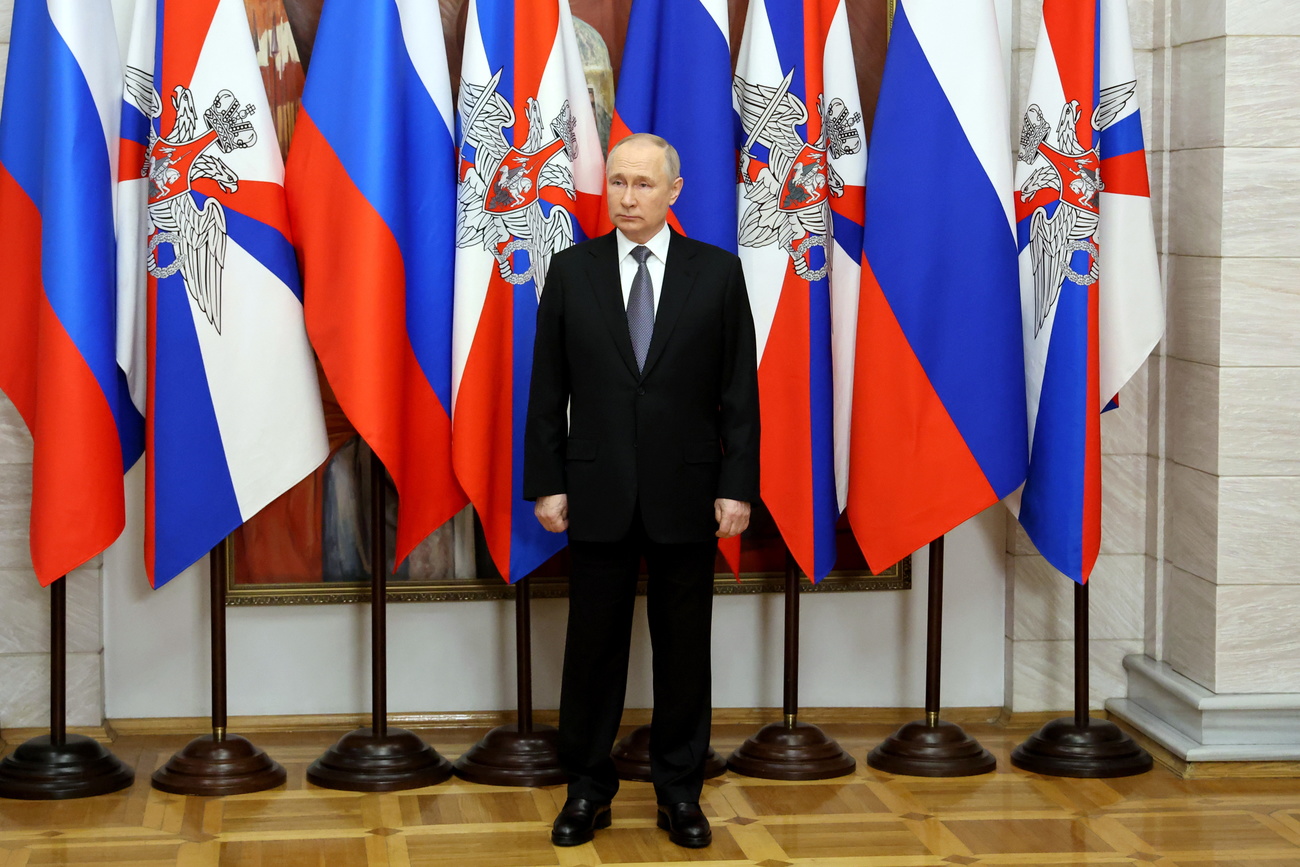
SWI: Can we call Putin a war criminal?
C.D.P.: He is a war criminal, yes, certainly. I see analogies with Slobodan Milosevic [the former president of Serbia who was put on trial at the ICC for failing to prevent genocide in Bosnia]. When Putin calls Ukrainians terrorists while boasting about fighting terrorism himself, this is exactly the same terminology used by Milosevic at the time [in the 1990s].
SWI: Politicians have been avoiding using the term genocide to describe the killing of Ukrainians by the Russian army. Why do you think they are showing this restraint?
C.D.P.: Because there is a very precise definition for the word genocide and politically many people don’t dare to use it. International law is very specific about this: [for genocide] you have to show intent and will. And it is very complex to investigate. I wouldn’t use these terms either [for the war in Ukraine]. That seems right to me.
SWI: Can we say that war crimes and crimes against humanity are taking place?
C.D.P.: They are taking place, that’s clear. But again, I wouldn’t say genocide. That would require a much more thorough investigation.
SWI: How do you arrest a suspected war criminal? Would the Russian state have to cooperate or would there need to be a regime change first?
C.D.P.: Many conditions would have to be met. First of all, there would have to be peace. The war has to end – justice can move forward in parallel with a peace process. But justice itself can also promote peace. Take what happened in the former Yugoslavia with Milosevic: he was still president when the peace talks were happening [in Rambouillet, France]. But he wasn’t there. Why not? Because he knew that he was under international investigation and that there could be an arrest warrant out against him. He didn’t know if there was one or not, but he knew the risk was there. So it was clear that the investigation against Milosevic facilitated talks for a peace agreement.
SWI: Ukraine is asking for a special tribunal to try Russia for the crime of aggression. Why do Ukrainians want this tribunal to be set up? Why is it important to them?
C.D.P.: Because the crime of aggression has already been proven and doesn’t require any evidence beyond what we already have. This is a crime for which Putin is responsible. In his speeches he admitted that he is the commander of the army and that it was he who led the aggression against Ukraine.
SWI: Do you think that social media and the many testimonies that have already been collected will facilitate current and future investigations?
C.D.P.: Social media is especially important for gathering evidence of crimes and will help to establish which military unit was responsible for them. Then we can go back and find out who the top political and military officials were. But the Ukrainian government’s cooperation with the judiciary would [also] facilitate any investigation of war crimes committed in Ukraine. In the former Yugoslavia, we received zero cooperation from the country’s authorities, which made it very difficult to gather evidence.
SWI: What has shocked you the most about this war?
C.D.P.: The mass graves. This is something unimaginable. Mass graves mean that all the civilian victims were buried together. And it’s going to be difficult to get them out. You have to do examinations, autopsies, DNA analysis, and determine whether they were civilians or the military. Many of these victims were buried with their identity cards, and that of course makes it easier to identify them. Civilians are the ones who have suffered the most in this war.
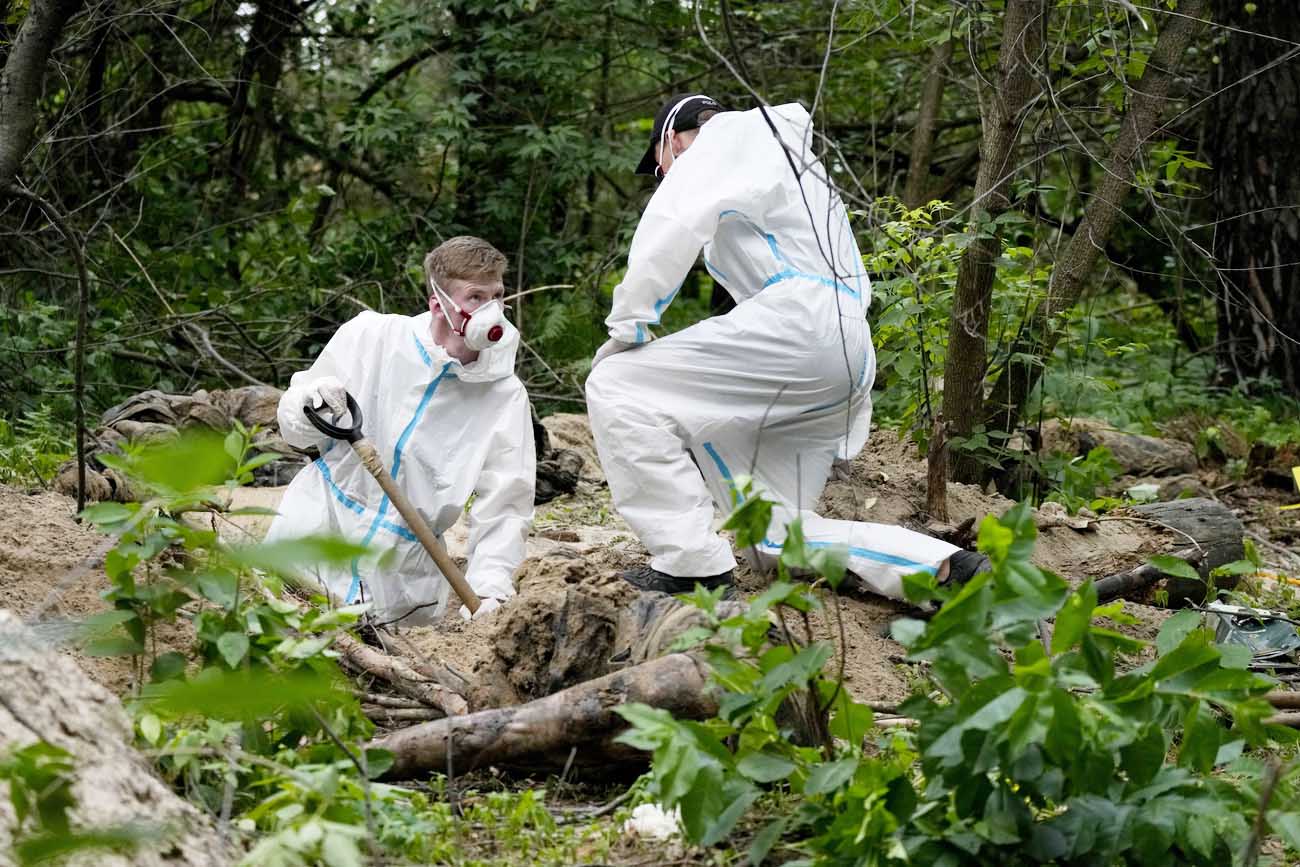
SWI: Russian propaganda would have people believe that these mass graves were created by the Ukrainian authorities themselves. What’s your reaction to this?
C.D.P.: I would say that any investigation will debunk these versions of events very, very quickly. If you do a serious investigation, there will be no doubt left about who the perpetrator is. You only need to identify a victim to understand this. Identifying the victims is the first step in any investigation.
SWI: The United Nations Independent International Commission of Inquiry on Ukraine has found evidence of executions, rape, torture and killings – including of children – in Bucha, Mariupol, Odessa and some 30 other Ukrainian cities. Which body should try these crimes – the ICC?
C.D.P.: First of all, the Ukrainian prosecutor should take over the investigation. As far as I know, the Ukrainians have already done this. I’ve heard that a Ukrainian court has already convicted a Russian soldier, but of course this is only a first step. The ICC should be able to investigate quickly. The best solution would have been to set up a specific tribunal for crimes committed in Ukraine. But this sort of thing is difficult to obtain because of Russia’s right of veto in the UN Security Council.
SWI: If such a tribunal were set up, vetoes by China and Russia in the Security Council are inevitable. Shouldn’t we re-evaluate the entire UN system and find other solutions?
C.D.P.: Yes, of course, but unfortunately this is not possible at the moment. We are taking about a key institution that has been, and continues to be, important, but that has very little power in the current situation.
SWI: In 2020, the Russian dissident Alexeï Navalny claimed that one of his investigations showed that the former Swiss attorney general, Michael Lauber, had received gifts from the Russians. In exchange, he failed to open investigations into allegations of money laundering by Russian officials through Swiss banks…
C.D.P.: No magistrate in Switzerland would allow themselves to be corrupted, and I know what I’m talking about. I know the environment, I know my colleagues, [and] I know the system. No, there are no cases of corruption of Swiss magistrates.
Translated from French by Catherine Hickley/gw
More

In compliance with the JTI standards
More: SWI swissinfo.ch certified by the Journalism Trust Initiative






























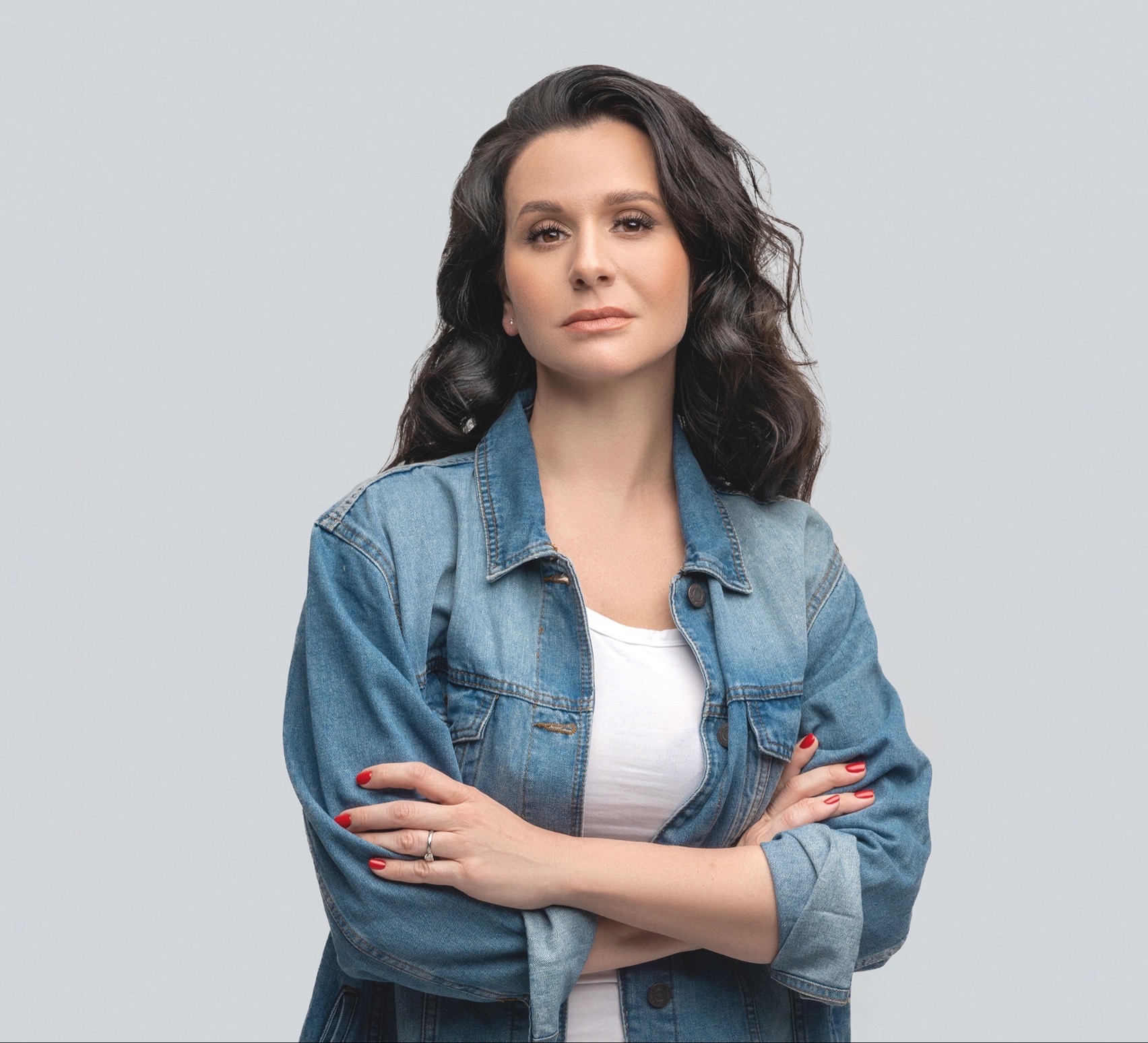
You can find an overview of ongoing debates with our journalists here . Please join us!
If you want to start a conversation about a topic raised in this article or want to report factual errors, email us at english@swissinfo.ch.